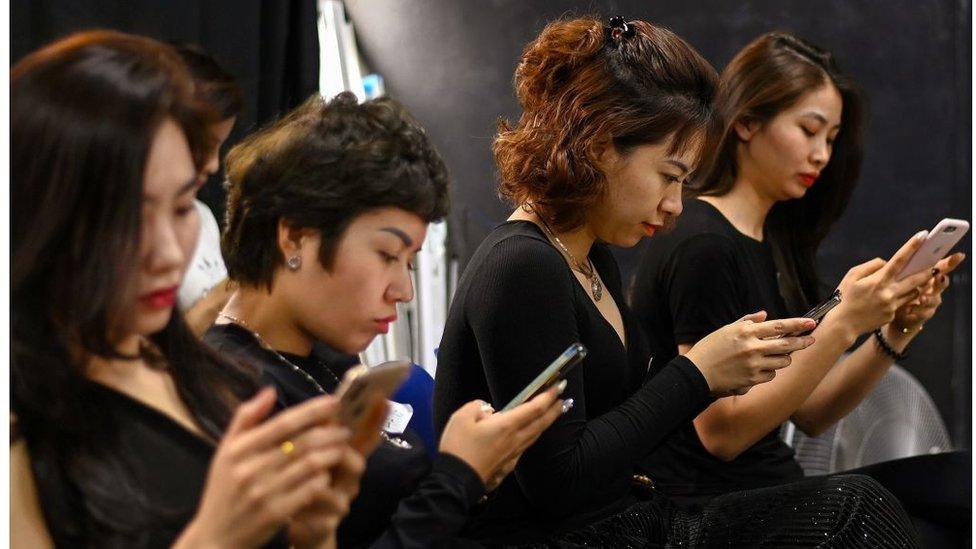Vietnam to crack down on anonymous social media accounts
- Published

Users of both local and foreign social networks will need to verify their identity
Social media users in Vietnam must soon verify their identities, in what the government says is a bid to crack down on online scams.
The move is aimed at stopping people from using anonymous accounts to break the law.
Unverified accounts on both local and foreign social media platforms such as Facebook must comply with the new regulations.
It is unclear how the new measures, expected by end-2023, will be enforced.
Authorities will monitor and possibly block anonymous accounts, said state media
It's the latest in a series of restrictions imposed on social media users in Vietnam.
Last year, social media platforms were required to take down news deemed as fake in 24 hours, rather than the previously mandated 48 hours.
Laws requiring tech firms like Google and Facebook to store users' data locally were also passed in 2022.
This gave the government "greater ability to pressure companies and is likely to lead to violations of the rights to freedom of expression, association, and privacy," Human Rights Watch said.
The latest regulations are part of the upcoming Telecommunications Law Amendment, which must be passed by lawmakers and are expected to come into effect by end-2023. Full details have not been revealed yet.
Not all providers in Vietnam currently offer identity verification.
However both individuals and organisations, must comply with the new rules.
Information deputy minister Nguyen Thanh Lam told the state-run Voice of Vietnam outlet that while authorities can identify social media account holders that break the law, they cannot be tracked down as they use cross-border applications.
Experts say that while disinformation and rising hate speech are legitimate concerns for governments in South East Asia, governments including Vietnam's have used vague definitions to exert greater control over the digital space.
"This weaponizing of fake news has served to tighten the regimes' grip on information to the detriment of a healthy information environment," a study by the The ISEAS-Yusof Ishak Institute found.
In the 2023 World Press Freedom rankings, Vietnam was ranked 178 out of 180, just above North Korea and China.
Related topics
- Published1 December 2020
- Published17 February 2022